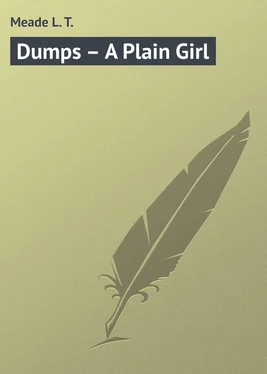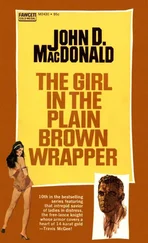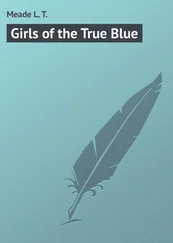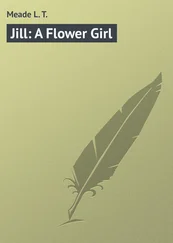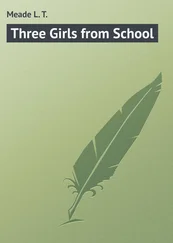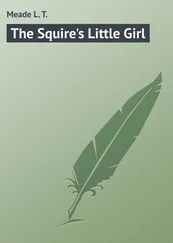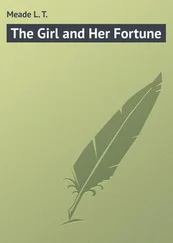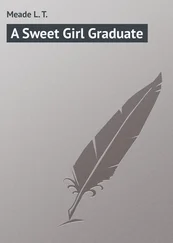L. Meade - Dumps – A Plain Girl
Здесь есть возможность читать онлайн «L. Meade - Dumps – A Plain Girl» — ознакомительный отрывок электронной книги совершенно бесплатно, а после прочтения отрывка купить полную версию. В некоторых случаях можно слушать аудио, скачать через торрент в формате fb2 и присутствует краткое содержание. Жанр: foreign_prose, foreign_children, на английском языке. Описание произведения, (предисловие) а так же отзывы посетителей доступны на портале библиотеки ЛибКат.
- Название:Dumps – A Plain Girl
- Автор:
- Жанр:
- Год:неизвестен
- ISBN:нет данных
- Рейтинг книги:5 / 5. Голосов: 1
-
Избранное:Добавить в избранное
- Отзывы:
-
Ваша оценка:
- 100
- 1
- 2
- 3
- 4
- 5
Dumps – A Plain Girl: краткое содержание, описание и аннотация
Предлагаем к чтению аннотацию, описание, краткое содержание или предисловие (зависит от того, что написал сам автор книги «Dumps – A Plain Girl»). Если вы не нашли необходимую информацию о книге — напишите в комментариях, мы постараемся отыскать её.
Dumps – A Plain Girl — читать онлайн ознакомительный отрывок
Ниже представлен текст книги, разбитый по страницам. Система сохранения места последней прочитанной страницы, позволяет с удобством читать онлайн бесплатно книгу «Dumps – A Plain Girl», без необходимости каждый раз заново искать на чём Вы остановились. Поставьте закладку, и сможете в любой момент перейти на страницу, на которой закончили чтение.
Интервал:
Закладка:
“I’ll thank you, Miss Dumps, not to call me names.”
“But you are scraggy, for that means thin.”
“I may be thin and genteel, and not fat and vulgar, but I won’t have it said of me that I’m scraggy,” said Hannah; “and by you too, Miss Dumps, of all people!”
“Very well, Hannah. She was fat and vulgar, if you like, and you are thin and genteel. Anyhow, I liked her; she was very jolly. She was about your age.”
“How d’you know what age I be?”
“Didn’t I see father put it down at the time of the last census?”
“My word! I never knew children were listening. I didn’t want my age known.”
“Hannah, you are forty-five.”
“And what if I be?”
“That’s very old,” I said.
“’Tain’t,” said Hannah.
“It is,” I repeated. “I asked Alex one day, and he said it was the age when women began to drop off.”
“Lawks! what does that mean?” said Hannah.
“It’s the way he expressed it. I don’t want to frighten you, but he said lots of people died then.” Hannah now looked really scared.
“And that’s why, Hannah,” I continued, “I don’t like to see you in your grandmother’s shawl, for I am so awfully afraid your bad cold will mean your dropping off.”
“Master Alex talks nonsense,” said Hannah. “You give me a start for a minute with the sort of gibberish you talk. Forty-five, be I? Well, if I be, my grandmother lived to eighty, and my grandfather to ninety; and if I take after him – and they say I have a look of him – I have another good forty-five years to hang on, so there’s no fear of my dropping off for a bit longer.” As these remarks of Hannah’s were absolutely impossible for me to understand, I did not pursue the subject further, but I said, “Father made such a nice remark to-night!”
“And whatever was that? The Professor is always chary of his talk.”
“He said that it was very wrong to be cold, and that the fires ought to be large and good.”
“He said that?”
“Yes, he did. And then I said, ‘I thought you wanted us to be saving;’ and he said, ‘It’s not saving to catch cold and have doctors’ bills.’ So now, Hannah, you have your orders, and we must have a big, big fire in the parlour during the cold weather.”
“Don’t bother me any longer,” said Hannah. “Your talk is beyond anything for childishness! What with trying to frighten a body in the prime of life about her deathbed, and then giving utterance to rubbish which you put into the lips of the Professor, it is beyond any sensible person to listen to. It’s cotton-wool I’ll put in my right ear the next time I come up to see you, Miss Dumps.”
By this time Hannah had filled her tray. She raised it and walked towards the door. She then, with some skill and strength, placed the whole weight of the tray on her right arm, and with the left she opened the door. I have seen waiters in restaurants do that sort of trick, but I never could understand it. Even if Hannah was dropping off, she must have some strong muscles, was my reflection.
The next day I went to school as usual. The fog had cleared and it was fairly bright – not very bright, for it never is in the city part of London in the winter months.
At school I, as usual, took my place in the same form with Agnes and Rita Swan. I was glad to see that I got to the head of the form and they remained in a subordinate position that day. In consequence during play-hours they were rather less patronising and more affectionate to me than usual. But I held up my head high and would have little to do with them. I was much more inclined to be friends with Augusta Moore than with the Swans just then.
Now, Augusta lived in a very small house a long way from the school. She was very poor, and lived alone with her mother, whose only child she was. Augusta was an uncommunicative sort of girl. She worked hard at her books, and was slow to respond to her schoolfellows’ advances of friendship; but when I said, “May I walk up and down in the playground with you, Augusta?” she on this occasion made no objection.
She glanced round at me once or twice, and then said, “I don’t mind, of course, your walking with me, Rachel, but I have to read over my poetry once or twice in order to be sure of saying it correctly.”
I asked her if she would like me to hear her, and she was much obliged when I made this offer; and after a few minutes’ pause she handed me the book, and repeated a very fine piece of poetry with considerable spirit. When she had come to the end she said, “How many mistakes did I make?”
“I don’t know,” I answered.
“You don’t know? But you said you would hear me.”
“I didn’t look at the book,” I said; “I was so absorbed watching you.”
“Oh! then you are no good at all,” said Augusta, and she looked really annoyed. “You must give me back the book and I must read it over slowly.”
“But you know it perfectly – splendidly.”
“That won’t do. I have to make all the proper pauses, you know, just as our recitation mistress required, and there mustn’t be a syllable too many or a syllable too few in any of the words, and there mustn’t be a single word transposed. That is the proper way to say poetry, and I know perfectly well that I cannot repeat Gray’s Elegy like that.”
I said I was sorry, and she took the book from my hands. Presently she went away to a distant part of the playground, and I saw her lips moving as she paced up and down. I walked quickly myself, for I wanted to keep warm, and just before I went into the house Rita Swan came up to me.
“Well, Dumps,” she said, “I wonder how you’ll like it?”
“Like what?” I asked.
Rita began to laugh rather immoderately. She looked at Agnes, who also came up at that moment.
“I don’t believe Dumps knows,” she said.
“Know what?” I asked angrily.
“Why, what is about to happen. Oh, what a joke!”
“What is it?” I asked again. I was so curious that I didn’t mind even their rude remarks at that moment.
“She doesn’t know – she doesn’t know!” laughed Rita, and she jumped softly up and down. “What fun! What fun! Just to think of a thing of that sort going to take place in her very own house – in her very own, own house – and she not even to have a suspicion of it!”
“Oh, if it’s anything to do with home, I know everything about my home,” I said in a very haughty tone, “and I don’t want you to tell me.”
I marched past the two girls and entered the schoolroom. But during the rest of the morning I am afraid I was not very attentive to my lessons. I could not help wondering what they meant, and what there was to know. But of course there was nothing. They were such silly girls, and I could not understand for one moment how I had ever come to be friends with them.
At one o’clock I went home, and there, lying on the parlour table, was a letter addressed to me. Now it is true, although some girls may smile when they read these words, I had never before received a letter. I have never made violent friendships. I met my school friends, for what they were worth, every day; I had no near relations of any sort, and father was always at home except for the holidays, when he took us children to some very cheap and very dreary seaside place. There was really no one to write to me, and therefore no one ever did write. So a letter addressed to Miss Rachel Grant made my heart beat. I took it up and turned it round and round, and looked at it back and front, and did all those strange things that a person will do to whom a letter is a great rarity and something precious.
I heard the boys tramping into the house at that moment, and I thrust the letter into my pocket. Presently father came in, and we sat down to our midday meal. Luckily for me, neither father nor the boys knew anything about the letter; but it was burning a hole in my pocket, and I was dying for the boys to return to school, and for father to go back to his classes, so that I might have an opportunity of opening the precious epistle.
Читать дальшеИнтервал:
Закладка:
Похожие книги на «Dumps – A Plain Girl»
Представляем Вашему вниманию похожие книги на «Dumps – A Plain Girl» списком для выбора. Мы отобрали схожую по названию и смыслу литературу в надежде предоставить читателям больше вариантов отыскать новые, интересные, ещё непрочитанные произведения.
Обсуждение, отзывы о книге «Dumps – A Plain Girl» и просто собственные мнения читателей. Оставьте ваши комментарии, напишите, что Вы думаете о произведении, его смысле или главных героях. Укажите что конкретно понравилось, а что нет, и почему Вы так считаете.
